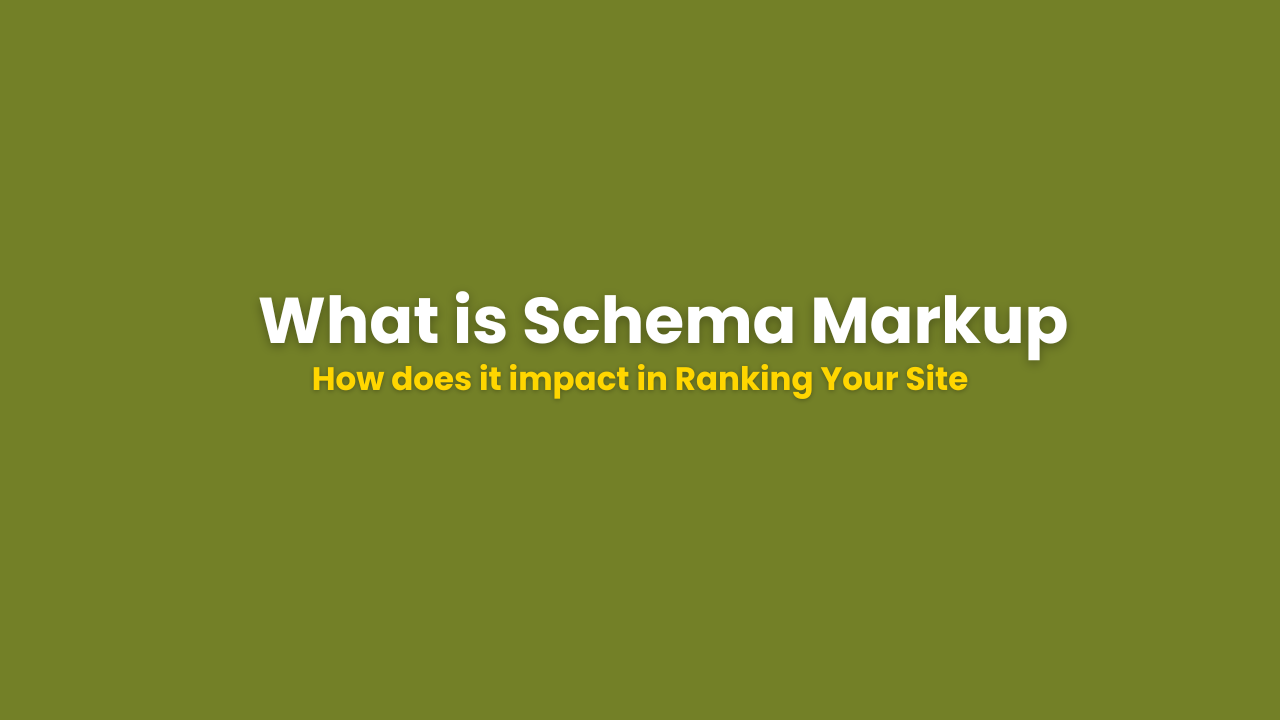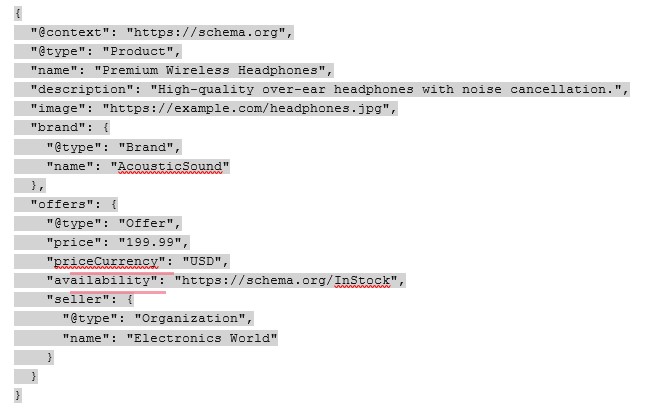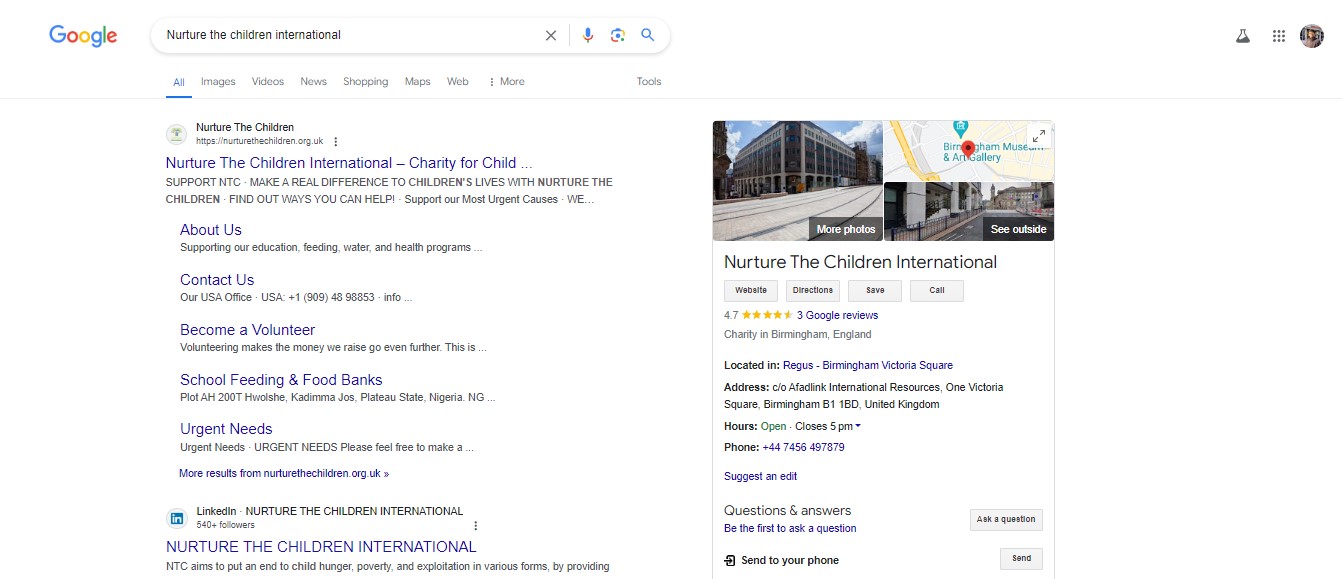
What is Schema Marketing? – How does it impact in Google Search Ranking
If you write valuable content with effort, you are properly willing to show it to potential users. This is where SEO comes in. I mean Schema Markup is a part of SEO, which provides a structural format in the web search.
This is also known as structural data and design specifically with HTML code. Moreover, you provide semantic vocabulary that helps search engines categorize through this data.
There are lots of search engine where you can implement these features, but Google is one of the most widely used search engines in terms of searching. However, with the help of schema markup framework to your content, you help the search engines to understand the meaning of your pages online.
How does it impact Ranking Your Site?
Google utilizes schema markup to display rich result also called as rich snippets in search engine results pages. These enhanced results foster additional context like images, ratings, and other relevant details. It makes it more engaging for readers to understand the topic covered in the post.
Types of Schema:
-
- Article: Enhances news, blog, or sports articles.
- Product: Useful for e-commerce stores, displaying price, availability, and reviews.
- Event: Describes events, dates, and locations.
- Local Business: Provides information about businesses.
- Recipe: Format recipes for search engines.
- Review: Displays ratings and reviews.
Article Schema Markup:
This is structural data format that helps search engines understand and categorize content on web pages. It is specifically coded with HTML and provide semantic information about the blog post you posted.
Properties of Article Schema:
-
- Headline: The main title of the article.
- Author: The person or organization that written the article.
- Publication Date: The date the article was published.
- Image: The primary image associated with the article
Now, let’s move into the structural data associated with schema markup tools. For instance, a news article titled “How to get rid of scams”, and you need to implement article schema using JDON-LD format, mentioned below
{
“@context”: “https://schema.org”,
“@type”: “NewsArticle”,
“headline”: ” How to get rid of scams”,
“image”: [
“https://example.com/photos/1×1/photo.jpg”,
“https://example.com/photos/4×3/photo.jpg”,
“https://example.com/photos/16×9/photo.jpg”
],
“datePublished”: “2024-01-05T08:00:00+08:00”,
“dateModified”: “2024-02-05T09:20:00+08:00”,
“author”: [
{
“@type”: “Person”,
“name”: “Jane Doe”,
“url”: “https://example.com/profile/janedoe123”
},
{
“@type”: “Person”,
“name”: “John Doe”,
“url”: “https://example.com/profile/johndoe123”
}
]
}

Product Schema Markup:
When it comes to product schema markup, then it’s not so different from article schema markup. But let’s dive into the attributes required in the HTML code
-
- Description: A concise summary of the product.
- Price: The cost of the product.
- Review: User ratings and reviews.
- Offer: Details about discounts or special deals.
- Awards: Any accolades or honors received by the product
Types of Product Schema:
-
- Price Drop: showcase the product’s historical average price and notify if the current price has dropped or not, like 80% off.
- Shipping Details: Estimates shipment time and shows shipping costs to users if necessary. This improves the user experience and ranking in Google.
Let’s take an example with product schema markup for the single product:

Multiple Product Examples (for a product list):
{
“@context”: “https://schema.org”,
“@type”: “ItemList”,
“name”: “Bestselling Laptops”,
“itemListElement”: [
{
“@type”: “Product”,
“name”: “Dell XPS 13”,
“description”: “Ultra-thin laptop with powerful specs.”,
“image”: “https://example.com/dell-xps.jpg”,
“offers”: {
“@type”: “Offer”,
“price”: “1299.99”,
“priceCurrency”: “USD”,
“availability”: “https://schema.org/InStock”
}
},
{
“@type”: “Product”,
“name”: “MacBook Air”,
“description”: “Lightweight laptop for productivity.”,
“image”: “https://example.com/macbook-air.jpg”,
“offers”: {
“@type”: “Offer”,
“price”: “999.99”,
“priceCurrency”: “USD”,
“availability”: “https://schema.org/InStock”
}
}
]
}

Event Schema Markup:
This also same as product schema markup but includes event dates, locations, performance, and ticket availability.
-
- Event Name: Specify the name of the event.
- Event Description: Provide a brief summary of the event.
- Event Date and Time: Indicate when the event takes place.
- Location: Describe the venue or address.
- Performers or Speakers: Include details about artists, speakers, or participants.
- Ticket Information: If applicable, mention ticket availability and pricing.
Example Code of Event Schema:
{
“@context”: “https://schema.org”,
“@type”: “Event”,
“name”: “Music Festival XYZ”,
“description”: “An exciting music festival featuring top artists.”,
“startDate”: “2024-08-15T18:00:00-07:00”,
“endDate”: “2024-08-17T23:59:00-07:00”,
“location”: {
“@type”: “Place”,
“name”: “City Park”,
“address”: “123 Main St, Anytown, USA”
},
“performer”: [
{
“@type”: “Person”,
“name”: “Artist A”
},
{
“@type”: “Person”,
“name”: “Artist B”
}
],
“offers”: {
“@type”: “Offer”,
“url”: “https://example.com/tickets”,
“price”: “49.99”,
“priceCurrency”: “USD”,
“availability”: “https://schema.org/InStock”
}
}
Noted: Codes depend on the websites, not all codes are the same. This is just an example to make you understand the formatting.
After creating the code for your event, then move to test the markup or code in the Google Structured Data Testing Tool. This helps to verify whether the markup is correctly implemented or not.
Later on, once everything looks good, publish your event page with the embedded schema markup and promote the event online through search engines.

Local Business Schema Markup:
This is also a structural data vocabulary that allows search engines to understand and display important about a local business in search. The details which needs to fills up are:
-
- Business Name
- Address
- Phone Number
- Hours of Operation
- Website URL
Example Code of Local Business Schema:
<html>
<head>
<title>Dave’s Steak House</title>
<script type=”application/ld+json”>
{
“@context”: “https://schema.org”,
“@type”: “Restaurant”,
“image”: [
“https://example.com/photos/1×1/photo.jpg”,
“https://example.com/photos/4×3/photo.jpg”,
“https://example.com/photos/16×9/photo.jpg”
],
“name”: “Dave’s Steak House”,
“address”: {
“@type”: “PostalAddress”,
“streetAddress”: “148 W 51st St”,
“addressLocality”: “New York”,
“addressRegion”: “NY”,
“postalCode”: “10019”,
“addressCountry”: “US”
},
“review”: {
“@type”: “Review”,
“reviewRating”: {
“@type”: “Rating”,
“ratingValue”: “4”,
“bestRating”: “5”
},
“author”: {
“@type”: “Person”,
“name”: “Lillian Ruiz”
}
},
“geo”: {
“@type”: “GeoCoordinates”,
“latitude”: 40.761293,
“longitude”: -73.982294
},
“url”: “https://www.example.com/restaurant-locations/manhattan”,
“telephone”: “+12122459600”,
“servesCuisine”: “American”,
“priceRange”: “$$$”,
“openingHoursSpecification”: [
{
“@type”: “OpeningHoursSpecification”,
“dayOfWeek”: [“Monday”, “Tuesday”],
“opens”: “11:30”,
“closes”: “22:00”
},
{
“@type”: “OpeningHoursSpecification”,
“dayOfWeek”: [“Wednesday”, “Thursday”, “Friday”],
“opens”: “11:30”,
“closes”: “23:00”
},
{
“@type”: “OpeningHoursSpecification”,
“dayOfWeek”: “Saturday”,
“opens”: “16:00”,
“closes”: “23:00”
},
{
“@type”: “OpeningHoursSpecification”,
“dayOfWeek”: “Sunday”,
“opens”: “16:00”,
“closes”: “22:00”
}
],
“menu”: “https://www.example.com/menu”
}
</script>
</head>
<body>
<!– Your event content goes here –>
</body>
</html>







-
-
1 month
Tagged french basic grammar, French Basic Grammar Complete Guide